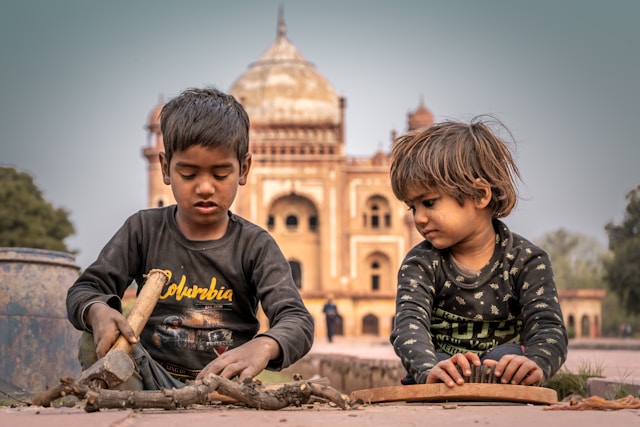Do you run or work for an NGO and have always wondered ‘How can I gather funds ?’ Look no further! We understand that securing funding is one of the most challenging aspects of running an NGO in India (or anywhere else, for that matter).
With thousands of non-profit organisations working towards social welfare, the competition for financial aid is intense. And lack of awareness regarding available funding, complicated application procedures, and reliance on donors, complicates their long-term viability.
Thankfully, there are multiple funding avenues that can support NGOs in achieving their objectives. Government grants offer organised financial assistance, CSR (Corporate Social Responsibility) programs help connect businesses with nonprofits, and international bodies provide substantial funding for social initiatives. Moreover, crowdfunding platforms such as Ketto and Milaap enable NGOs to collect direct contributions from people.
Our guide examines the top funding options for Indian NGOs in 2025, detailing grants, CSR financing, online fundraising, and international support to aid organizations in attaining financial stability and enhancing their impact.
Government Grants for NGOs in India
Government grants play a crucial role in supporting NGOs across India, helping them scale their initiatives, sustain operations, and maximize their social impact. These grants provide much-needed financial stability, particularly for organizations working in sectors like education, healthcare, women’s empowerment, and rural development. However, many NGOs struggle to access these funds due to a lack of awareness or difficulties in navigating complex application processes. This section explores key government grants available to NGOs in India and how to apply for them.
Broadly speaking, there are 3 major types of grants that the government of India disburses to NGOs -
- Project Grants: These fund specific programs like education, rehabilitation, or skill development projects for disadvantaged groups.
- Operational Grants: These cover recurring expenses such as salaries, rent, and administrative costs to sustain an organization’s activities.
- Capital Grants: These grants help NGOs acquire or improve physical assets such as buildings, infrastructure, or equipment.
Key Government Grant Schemes for NGOs in India
The Indian government provides multiple grants to NGOs supporting marginalized communities, rural development, and sector-specific initiatives.
Ministry of Social Justice and Empowerment Grants
The Ministry of Social Justice and Empowerment Grants funds NGOs working with Scheduled Castes, minorities, senior citizens, and persons with disabilities. Their key schemes are:
- Grant-in-Aid for SCs – Supports education and skill development programs.
- NAPSrC & AVYAY – Aid for senior citizen welfare initiatives.
- NAPDDR – Funds rehabilitation and de-addiction programs.
- ADIP Scheme – Provides assistive devices for persons with disabilities.
- DDRS – Supports disability rehabilitation projects.
Ministry of Rural Development Grants
The Ministry of Rural Development Grants offers grants for employment, poverty alleviation, and skill development through the National Rural Livelihood Mission (NRLM).
Ministry of Tribal Affairs Grants
Funds NGOs working in education, healthcare, and employment for tribal communities.
Other Ministry Grants
- Health & Family Welfare – Supports healthcare, nutrition, and disease prevention.
- Environment, Forest & Climate Change – Funds environmental conservation projects.
- Women & Child Development – Provides aid for women’s empowerment and child welfare initiatives.
CSR Funding & Corporate Partnerships
Corporate Social Responsibility (CSR) funding is a major financial resource for NGOs in India, with large corporations allocating a percentage of their profits toward social development initiatives. Partnering with companies like Tata Trusts and Reliance Foundation can help NGOs secure sustainable funding for impactful projects.
What is CSR Funding for NGOs?
Under the Companies Act, 2013, companies with a net profit of ₹5 crore+ must allocate 2% of their average net profit toward CSR activities. This funding supports education, healthcare, rural development, environmental conservation, and women’s empowerment.
Top CSR Funding Sources for NGOs
- Tata Trusts – Supports NGOs in education, healthcare, skill development, and rural livelihoods.
- Reliance Foundation – Focuses on rural transformation, health, and disaster response initiatives
- Infosys Foundation – Funds NGOs working in education, healthcare, and heritage conservation
- Wipro Foundation – Supports social initiatives in sustainability, education, and community development.
Crowdfunding & Online Donations
Crowdfunding has become an effective method for NGOs in India to raise funds directly from individuals and communities. Platforms like Milaap and Ketto provide a way for organizations to reach a wider audience, secure funding quickly, and establish long-term donor relationships.
What is Crowdfunding for NGOs?
Crowdfunding involves collecting small donations from a large number of people through online platforms, social media, and digital campaigns. It is widely used for:
- Medical aid and emergency relief
- Education and child welfare
- Animal rescue and environmental causes
- Community development projects
Top Crowdfunding Platforms for NGOs in India
Milaap – Specializes in medical and social causes, offering flexible funding options.
Ketto – Provides global reach and supports NGOs working in health, education, and rural development.
ImpactGuru – Focuses on healthcare and social impact fundraising.
GiveIndia – A verified platform that connects NGOs with high-impact donors.
International Funding Sources for Indian NGOs
International organizations provide significant funding for Indian NGOs working in sectors such as education, healthcare, poverty alleviation, gender equality, and environmental sustainability. Grants from UNICEF, the World Bank, and other global agencies can help NGOs scale their impact and ensure financial sustainability.
Top International Grant Sources for NGOs
UNICEF Grants – Funds NGOs focusing on child welfare, education, healthcare, and nutrition programs. NGOs can apply for grants through [UNICEF India](https://www.unicef.org/india/).
World Bank Grants – Provides financial aid for large-scale development projects in education, sanitation, and women’s empowerment. NGOs can explore opportunities through the [World Bank’s Development Marketplace](https://www.worldbank.org/).
United Nations Development Programme (UNDP) – Offers funding for NGOs working on poverty reduction, environmental sustainability, and women’s rights. Visit [UNDP India](https://www.undp.org/india) for grant details.
Global Fund – Supports initiatives related to HIV/AIDS, tuberculosis, and malaria prevention in India.
Ford Foundation – Provides grants for social justice, human rights, and economic development projects. NGOs can apply through the [Ford Foundation India](https://www.fordfoundation.org/) portal.
Bill & Melinda Gates Foundation – Funds healthcare, sanitation, and educational projects in India.
How NGOs Can Apply for International Grants
- Register with international funding portals like Devex, FundsforNGOs, and GrantStation.
- Align projects with donor priorities (e.g., UNICEF focuses on child welfare).
- Submit detailed proposals with clear objectives, impact assessments, and financial transparency.
- Network with global funding agencies through conferences, partnerships, and UN initiatives.
- Ensure compliance with grant reporting requirements to maintain eligibility for future funding.







